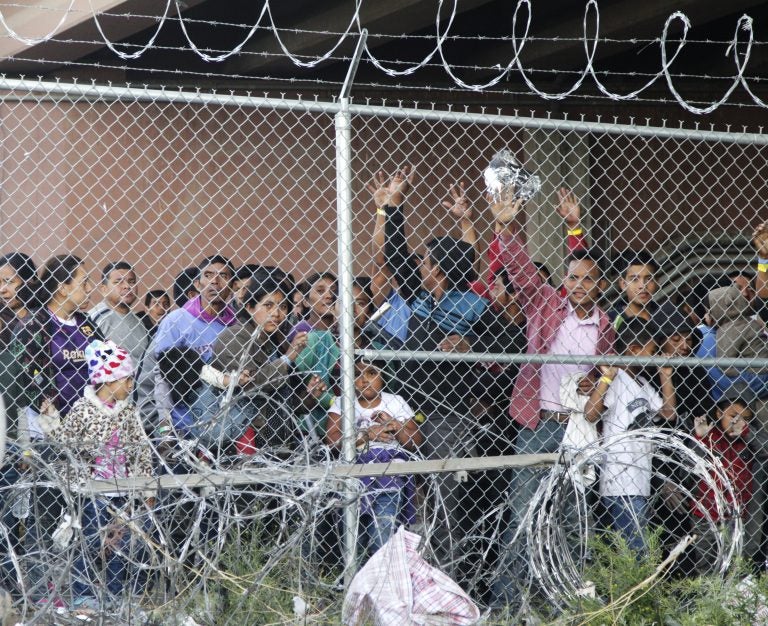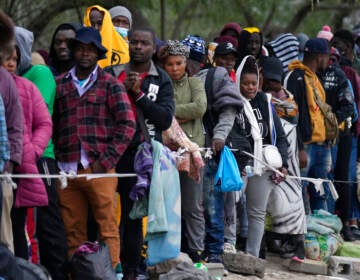More U.S. officers may be reassigned to deal with border crush
The inspectors are instead being put to work processing migrants, taking their applications for asylum and transporting them to holding centers.

Central American migrants wait for food in El Paso, Texas, Wednesday, March 27, 2019, in a pen erected by U.S. Customs and Border Protection to process a surge of migrant families and unaccompanied minors. (Cedar Attanasio/AP Photo)
As many as 2,000 U.S. inspectors who screen cargo and vehicles at ports of entry along the Mexican border may be reassigned to help handle the surge of Central American families coming across, the Trump administration said Monday.
The temporary reassignments, up from the current 750 inspectors, threaten to slow the movement of trucks bringing TVs, medical devices and other goods into the U.S. and cause delays for cross-border commuters who come for work or school.
The inspectors are instead being put to work processing migrants, taking their applications for asylum and transporting them to holding centers.
Homeland Security Secretary Kirstjen Nielsen said the reassignments are necessary to help manage a huge influx of migrants that is straining the system and overflowing border facilities.
“The crisis at our border is worsening, and DHS will do everything in its power to end it,” Nielsen said.
The effects of pulling inspectors from ports of entry were on display in El Paso, where thousands of border crossers lined up Monday, waiting about an hour to cross into the U.S. They included vendors, U.S. citizens and students with visas.
Sergio Amaya, 24, a student at the University of Texas-El Paso, is an American citizen who lives in Juarez. He said it normally takes him two minutes to cross the bridge.
“The Border Patrol agent said it’s going to get worse,” Amaya said.
Meanwhile, business owners and elected officials warned of the economic consequences if President Donald Trump makes good on his threat last week to shut down all ports of entry along the southern border to stem the wave of asylum seekers.
The United States and Mexico trade about $1.7 billion in goods daily, according to the U.S. Chamber of Commerce, which said closing the border would be “an unmitigated economic debacle” that would threaten 5 million American jobs.
Laredo Mayor Pete Saenz, chairman of the Texas Border Coalition, said a closure would be catastrophic.
“Closing the border would cause an immediate depression in border state communities and, depending on the duration, a recession in the rest of the country,” he said.
“Our business would end,” Marta Salas, an employee at an El Paso shop near the border crossing that sells plastic flowers that are used on the Mexican side by families holding quinceañeras, the traditional coming-of-age celebrations.
Salas said her whole family would be affected if the president closed the border.
“There are Americans who live there. I have nephews who come to UTEP, to grade school, to high school every day,” Salas said.
Apprehensions all along the southern border have soared in recent months, with border agents on track to make 100,000 arrests and denials of entry there this month, more than half of them families with children.
In addition to reassigning hundreds of inspectors, Nielsen has asked for volunteers from non-immigration agencies within her department and sent a letter to Congress requesting resources and broader authority to deport families faster. The administration is also ramping up efforts to return asylum seekers to Mexico.
___
Associated Press writers Colleen Long in Washington and Nomaan Merchant in Houston contributed to this story.
WHYY is your source for fact-based, in-depth journalism and information. As a nonprofit organization, we rely on financial support from readers like you. Please give today.




